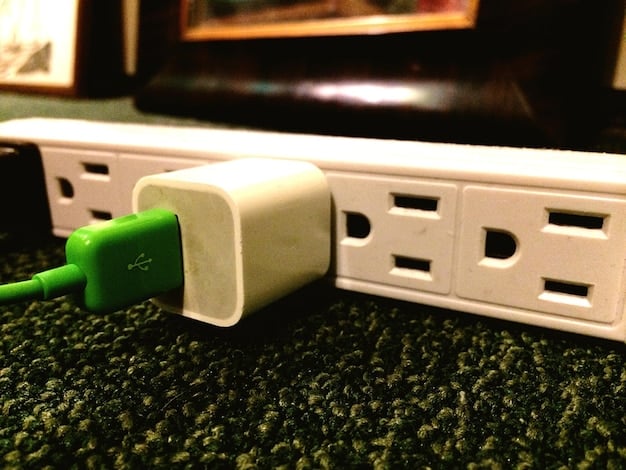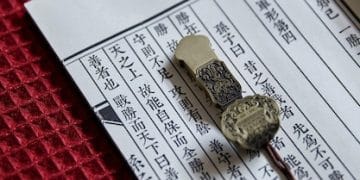Shopping for Electronics in Japan: US Buyer’s Guide 2025

Shopping for electronics in Japan as a US buyer in 2025 requires understanding voltage, warranty nuances, and compatibility issues to ensure a smooth and satisfying purchase experience.
Shopping for Electronics in Japan: A US Buyer’s Guide to Voltage, Warranties, and Compatibility in 2025
Planning on shopping for electronics in Japan: A US buyer’s guide to voltage, warranties, and compatibility in 2025 requires some research and preparation. This guide helps US residents navigate these complexities, ensuring a seamless shopping experience and avoiding potential pitfalls.
Understanding the Voltage Differences
One of the first aspects to consider when shopping for electronics in Japan is the voltage difference. Japan operates on 100V, while the US uses 120V. Using US appliances in Japan without a proper voltage converter can damage your devices.
Voltage Converters vs. Adapters
It’s crucial to understand the distinction between voltage converters and adapters. Adapters simply change the shape of the plug, allowing you to physically plug a US device into a Japanese outlet. However, they do not change the voltage.
Voltage converters, on the other hand, transform the voltage from 100V to 120V or vice versa. If your device is not dual-voltage, you’ll need a converter to safely use it in Japan.
Dual-Voltage Devices
Many modern devices, such as laptops, smartphones, and tablets, are dual-voltage, meaning they can operate on both 100V and 120V. Check the power adapter or the device itself for a label that indicates the voltage range (e.g., 100-240V).
- Always check the voltage requirements of your devices before plugging them in.
- Use a voltage converter if your device is not dual-voltage.
- Ensure the voltage converter is rated for the wattage of your device.
Investing in high-quality voltage converters or adapters is essential for safely using electronics purchased in Japan back in the United States. Neglecting this could lead to damaged devices or even electrical hazards.
Navigating Warranty Issues
Warranties can be tricky when purchasing electronics in Japan as a US buyer. Generally, manufacturer warranties are only valid in the country where the product was purchased. This means that if your Japanese-bought device malfunctions in the US, you may not be able to claim the warranty.
Global Warranties vs. Local Warranties
Some manufacturers offer global warranties that are valid in multiple countries, but these are rare. Most electronics sold in Japan come with a local warranty that is only applicable within Japan.
Before making a purchase, carefully review the warranty terms and conditions. Check if the manufacturer offers international support or if there are any authorized service centers in the US.
Extended Warranties
Consider purchasing an extended warranty from a third-party provider that covers international use. These warranties can provide additional protection and peace of mind, especially for high-value items.

- Always inquire about the warranty terms before buying electronics in Japan.
- Check if the manufacturer offers international support or service centers in the US.
- Consider purchasing an extended warranty that covers international use.
Understanding the limitations of warranties on electronics bought in Japan is crucial for making informed decisions. Weigh the potential risks and benefits before investing in a particular product.
Ensuring Compatibility with US Standards
Ensuring compatibility with US standards is an important consideration. While many electronic devices function universally, you might encounter certain regional differences that affect usability.
Plug Types and Adapters
Japan uses Type A and Type B plugs, which are the same as those used in the US. However, it’s always good to double-check, especially if you are traveling from other regions with different plug types.
While the plug types may be the same, voltage can still be an issue as detailed above. It is always advisable to verify compatibilities before plugging any devices in.
Software and Region Locks
Some electronic devices, such as gaming consoles and DVD players, may have region locks that restrict their use to specific regions. Devices purchased in Japan can have these region locks.
- Check for region locks on gaming consoles, DVD players, and other media devices.
- Look for devices that are region-free or can be easily unlocked.
- Remember that software and content purchased in Japan may not be compatible with US accounts.
Understanding and addressing potential compatibility issues can save you from frustration and ensure that your electronics purchased in Japan work seamlessly when you return to the US.

Where to Shop for Electronics in Japan
Japan offers a wide array of options when it comes to purchasing electronics, ranging from large department stores to specialized electronics districts and online retailers. Knowing where to shop can greatly affect your experience and the deals you find.
Akihabara: The Electric Town
Akihabara, often called “Electric Town,” is Tokyo’s famous electronics district. It is a hub for electronics retailers, anime and manga stores, and themed cafes. In Akihabara, you can find many stores.
While Akihabara offers a unique shopping experience, prices may not always be the most competitive. It’s a good idea to compare prices with other retailers before making a purchase. Also many stores can haggle with you for better prices especially if you are buying in bulk.
Large Electronics Retailers
Large electronics retailers such as Bic Camera and Yamada Denki offer a wide selection of products at competitive prices. These stores often have multilingual staff and tax-free shopping for tourists.
- Bic Camera: Known for its wide range of products and tax-free shopping for tourists.
- Yamada Denki: Offers competitive prices and frequent sales events.
- Yodobashi Camera: Features a vast selection of electronics and appliances.
Choosing the right place to shop for electronics in Japan can enhance your experience and ensure you get the best value for your money. Explore different options and compare prices before making a decision.
Sales Tax and Duty-Free Shopping
Understanding sales tax and duty-free shopping is essential for maximizing your savings when buying electronics in Japan. Tourists are often eligible for tax exemptions on certain purchases, making it more affordable to buy electronics.
Sales Tax in Japan
Japan has a consumption tax, similar to sales tax in the US, which is currently at 10%. This tax is added to most purchases, including electronics. However, tourists can often avoid paying this tax through duty-free shopping.
Duty-Free Shopping for Tourists
To qualify for duty-free shopping, you must be a non-resident tourist staying in Japan for no more than six months. You’ll need to present your passport at the time of purchase to claim the exemption.
Requirements for Duty-Free Purchases
- Spend a minimum amount at a participating store (usually around 5,000 yen).
- Present your passport to the store staff for verification.
- Ensure the items are for personal use and will be taken out of Japan within a certain timeframe.
Taking advantage of duty-free shopping can significantly reduce the cost of electronics purchases in Japan. Always carry your passport with you and inquire about tax-free options when shopping.
Payment Methods and Currency Exchange
When shopping for electronics in Japan, it’s important to be prepared with the right payment methods and understand currency exchange rates. While credit cards are widely accepted, having some cash on hand is also advisable.
Credit Cards and Debit Cards
Major credit cards such as Visa, Mastercard, and American Express are accepted at most large retailers and department stores in Japan. However, smaller shops and restaurants may only accept cash. Check the exchange rates and fees beforehand.
Cash and Currency Exchange
Having some Japanese Yen on hand is useful. Currency exchange services are available at airports, banks, and post offices. It’s a good idea to exchange currency before you leave home or when you arrive in Japan.
Mobile Payments
- Suica and Pasmo cards: Rechargeable cards used for public transportation and can also be used for purchases at some stores.
- QR code payments: Services like PayPay and LINE Pay are popular in Japan but require a Japanese phone number and bank account.
Being prepared with various payment options can make your shopping experience in Japan smoother and more convenient.
| Key Point | Brief Description |
|---|---|
| 💡 Voltage | Japan uses 100V; US uses 120V. Use a converter for non-dual voltage devices. |
| 🛡️ Warranty | Local warranties may not be valid in the US; check for global warranties. |
| 🛍️ Shopping | Akihabara, Bic Camera, and Yamada Denki are popular spots. |
| 💰 Tax-Free | Tourists can often shop tax-free by presenting their passport. |
Frequently Asked Questions
▼
Japan operates on 100V, while the US uses 120V. Ensure your devices are dual-voltage (100-240V) or use a voltage converter to avoid damage.
▼
Generally, warranties are only valid in the country where the product was purchased. Check if the manufacturer offers international support.
▼
Akihabara (Electric Town) is famous, but large retailers like Bic Camera and Yamada Denki offer competitive prices and tax-free shopping for tourists.
▼
Yes, tourists can often shop tax-free by presenting their passport at the time of purchase, provided they meet the minimum spending requirement.
▼
Major credit cards are accepted at many retailers, but having some Japanese Yen in cash is also advisable, especially for smaller shops.
Conclusion
As a US buyer shopping for electronics in Japan: A US buyer’s guide to voltage, warranties, and compatibility in 2025 it’s essential to consider voltage differences, warranty limitations, compatibility issues, shopping destinations, and payment methods. By preparing beforehand and being aware of these factors, you can make informed decisions and enjoy a successful shopping experience in Japan.





